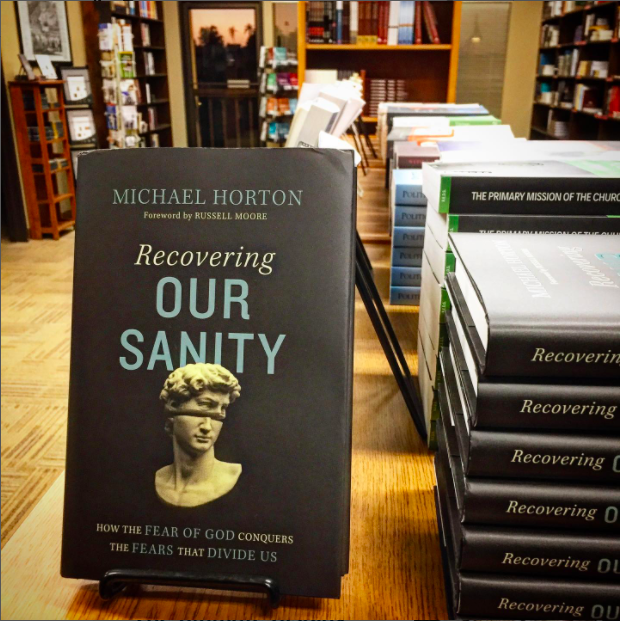In February, 2022, Dr. Michael S. Horton published “Recovering Our Sanity,” his book on fear and faith in the Christian life, a timely reminder of the awesome and unchanging power of God during what feel like unprecidented times. The title joins Dr. Estelle's new work, “The Primary Mission of the Church,” and Dr. Brennan's book on the Son of God as the most recent faculty publications. See below for details.
Recovering Our Sanity: How the Fear of God Conquers the Fears that Divide Us
Dr. Michael S. Horton
Published: February 2022
At times the world feels like it's losing its mind. From politics to the pandemic, we live with an ever-increasing uncertainty, and many of us have grown to fear the rapid disintegration of our society and our own lives. Recovering Our Sanity is not another self-help book about how to beat your daily fears for a better life. It's a book that will show you the gravity and glory of a God who's worthy of our fear. It’s a book that will reveal how these two biblical phrases—Fear God and Do Not Be Afraid—are not contradictory but actually one coherent message.
The Primary Mission of the Church: Engaging or Transforming the World?
Dr. Bryan Estelle
Published: January 2022
This book argues for the separation of the church and the state. Additionally, Estelle claims that the historically reformed position is that Christ is ruler of all; however, he manifests his rule in different ways. These basic categories, i.e., that God rules the church as a redeemer (a spiritual kingdom) and rules the state and all other social institutions (the civil kingdom) as creator and sustainer, has been widely held by Reformed thinkers for centuries until the modern period. Estelle claims that without this bedrock truth, any attempt to describe the primary mission of the church will collapse.
Divine Christology in the Epistle to the Hebrews: The Son as God
Dr. Nick Brennan
Published: October 2021
Nick Brennan investigates the depiction of the Son's divine nature in the Epistle to the Hebrews. Despite little attention being directly given to the Son's divinity in recent study of Hebrews, Brennan argues that not only is the Son depicted as divine in the Epistle, but that this depiction ranges outside the early chapters in which it is most often noted, and is theologically relevant to the pattern of the Author's argument.


